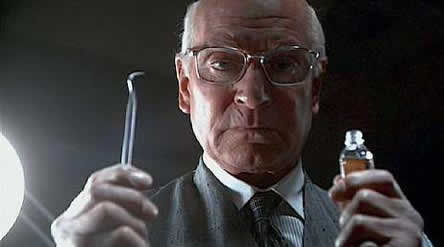 |
| courtesy of darrelplant.com |
Though many films tackle the issues of mental health and medicine, there are plenty of films that have an underlying theme of mental illness that you may not know existed. Now, obviously I'm not insinuating that the filmmakers made a conscious effort to embed these themes in their movies, but there are a few that can undeniably be viewed as having some pseudo-connection to the syndromes. So, without further ado, lets take a look at the five films (and one bonus!) that you had no idea were about medical disorders and what those disorders are.
 Arnold Schwarzenegger in "Pumping Iron: courtesy of jini.com | Pumping Iron (1977)Disorder: BigorexiaBigorexia is essentially the opposite of anorexia or a psychological need to keep getting more and more muscular. Plenty of people want to be in good shape, but the 1977 documentary Pumping Iron took us inside the world of professional body building and introduced us to a number of men suffering from this disorder, including a young Austrian named Arnold Schwarzenegger. It's one thing to be built well - it's quite another to make it your life. |
|---|---|
Scene from "Beauty and the Beast" courtesy of vientay.com | Beauty and the Beast (1991)Disorder: Stockholm SyndromeThis film gave me the idea for the list when I was watching it over the weekend off and on with my son. It occurred to me that Belle suffers from an acute sense of Stockholm Syndrome, or kidnapping victims starting to sympathize with their captors. The first animated film to be nominated for best picture also leans toward the flipside, where kidnappers begin to identify with their victims, called Lima Syndrome. |
 Leonardo Dicaprio in "Catch Me If You Can" courtesy of hitfix.com | Catch Me If You Can (2002)Disorder: Antisocial Personality DisorderThe only reason I can include this is because I read the book and know that main character Frank Abignale, Jr. (played by Dicaprio in the film) really seems to suffer from this. Antisocial Personality Disorder sufferers tend to display long-term patterns of manipulating, exploiting, and violating the right of others, most often criminally. Fortunately, in this situation it doesn't turn out psychopathic, as it can in other cases. |
 Ben Whishaw in "Perfume: The Story of a Murderer" courtesy of worstpreviews.com | Perfume: The Story of a Murderer (2006)Disorder: SynesthesiaYou probably didn't know this movie was about a disorder because you most likely haven't seen it. This hidden gem starring Ben Whishaw, Dustin Hoffman, and Alan Rickman tells the story of a boy with an acute sense of smell. So much so, that it could be classified as a case of Synesthesia, or a neurological disorder where the stimulation of one sense causes the automatic heightening of another sense, resulting in socially unacceptable behavior. Like murdering people for their smell. |
 Marion Cotillard and Owen Wilson in "Midnight in Paris" courtesy of thisguyoverhere.com | Midnight in Paris (2011)Disorder: Stendhal SyndromeMany would argue this could be classified as Paris Syndrome, but that most often affects Asian tourists and results in panic attacks and breakdowns. In Midnight in Paris, one could argue that Gil (Owen Wilson) suffers from Stendhal Syndrome, or confusion and hallucinations brought on by the overexposure to a large amount of beautful art. In the film, Gil finds himself dining with long dead writers, filmmakers, and artists as an after-effect of strolling around the beautifully wrought streets of France's city of love. |
 Peter Sellers in "Dr. Strangelove" courtesy of listverse.com | BONUS: Dr. Strangelove, or How I Learned to Stop Worrying and Love the BombDisorder: Alien Hand SyndromeI only include this because this disorder is known by another name - Dr. Strangelove Syndrome. The disorder is so-called due to its similarities to Peter Sellers work as the title character in Stanley Kubrick's brilliant 1964 satire. In the film, Sellers has a near inability to control his right hand, which keeps trying to salute "Mein Fuhrer" (Hitler). It may be played up as a joke in the film, but the syndrome is very real neaurological disorder that makes the sufferer's hand seem like it has a mind of its own. |
So before you think you're watching a comedy or heist film, look deeper. Maybe you're watching an in-depth discussion about a little known psychological breakdown that you've never heard of.



No comments:
Post a Comment